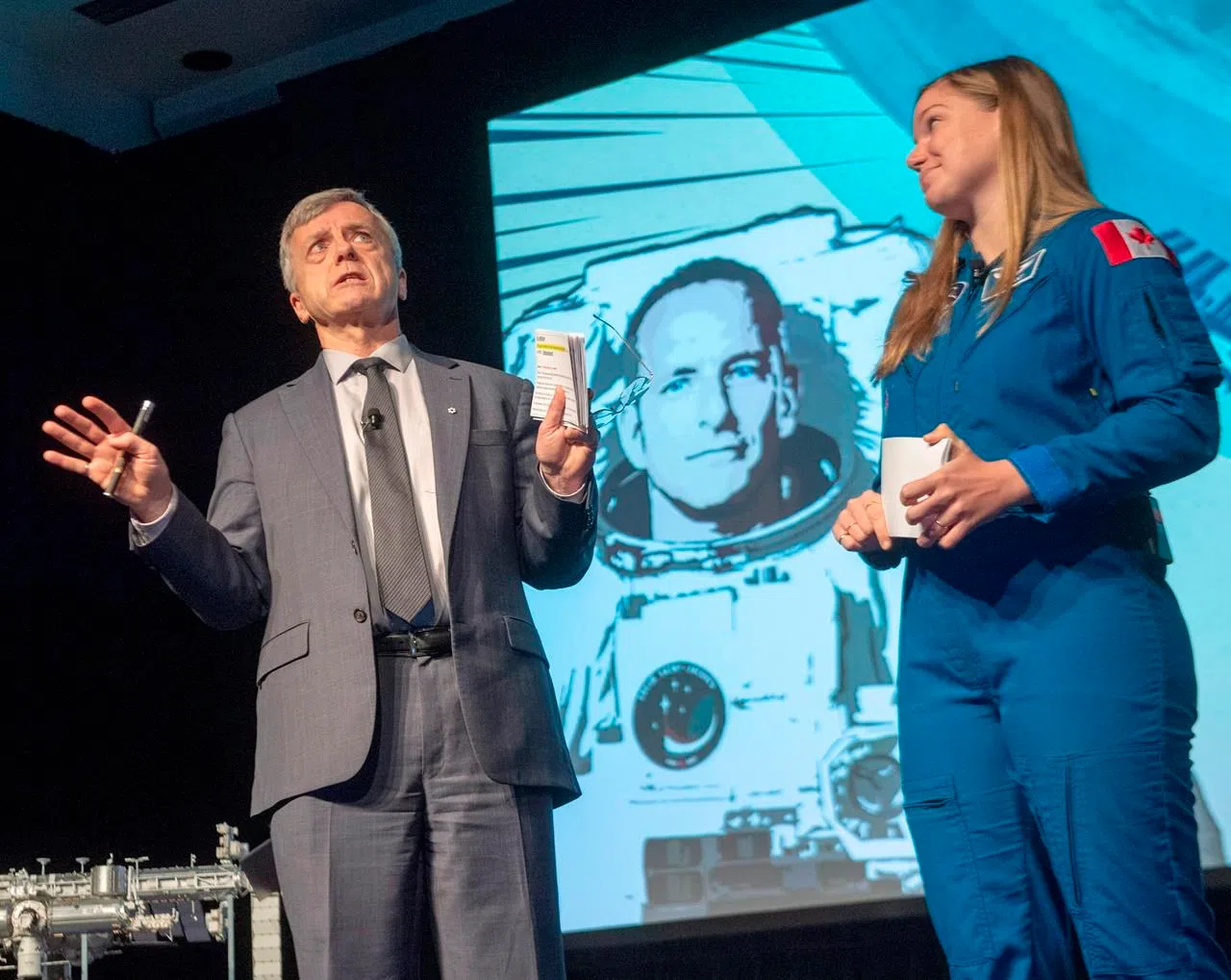
Some anxious moments as Canadian David Saint-Jacques successfully blasts off
LONGUEUIL, Que. — As David Saint-Jacques blasted off into space Monday, retired astronaut Robert Thirsk clinically explained the process to a packed crowd of Canadian Space Agency staff and guests.
It was only after the spacecraft safely entered orbit about nine minutes later, drawing the first applause from an audience watching a live NASA feed, that Thirsk admitted to some pre-launch jitters about the Canadian astronaut’s mission.
His former colleague was on the first manned launch since a rocket failure forced a Soyuz capsule carrying two astronauts to abort and make an emergency landing in October. Russia briefly suspended launches to investigate before giving the mission the all-clear Nov. 1.
“I think I was more anxious today than on a typical Soyuz launch because of the launch abort in October,” Thirsk, the first Canadian to fly aboard a Soyuz capsule, said in an interview.
